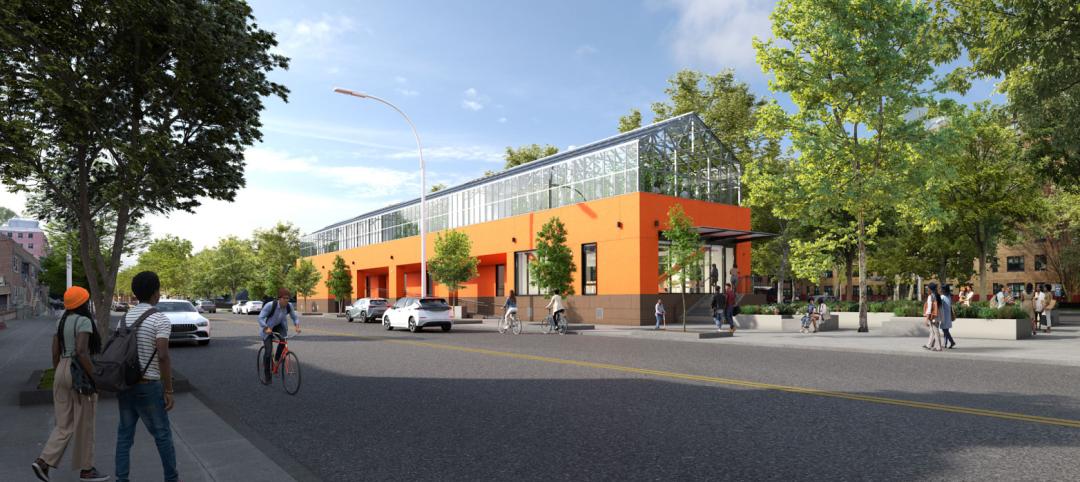The construction unemployment rate jumped to 18.8% in November as the sector lost another 5,000 jobs since October, according to an analysis of new federal employment data released today by the Associated General Contractors of America. The data indicates that the construction sector has suffered more than any other industry during the economic downturn, association officials said.
"The unemployment report shows construction still has not broken free of the recession that has gripped the industry since 2006," said Ken Simonson, the association's chief economist. "Other than the stimulus and other temporary federal programs, it has been a pretty bleak four yours for the industry."
Simonson noted that the construction industry has lost 2.1 million jobs since employment in the sector peaked in August 2006. He added that the sector has continued to lose jobs during the past twelve months even as overall private employment has picked up. Since November 2009, the industry has lost 117,000 jobs while the private sector added 1,088,000 jobs. The industry's 18.8% unemployment rate, not seasonally adjusted, also was the highest of any industry and roughly double the overall unemployment rate.
The only construction segment to add jobs in the past year has been heavy and civil engineering construction, which has benefitted from federal stimulus, military base realignment, and Gulf Coast hurricane-prevention projects, Simonson observed. Meanwhile, residential construction has lost 79,000 jobs over the past twelve months, while nonresidential specialty trade contractors and nonresidential building - the other two segments in the nonresidential category - have lost 62,000 jobs.
Association officials cautioned that the stimulus and other temporary federal programs would begin winding down in 2011, most likely before private, state or local demand for construction picks up. They urged Congress and the Administration to act on a series of long-delayed infrastructure bills for water, transportation and other infrastructure programs.
"We're hoping Congress doesn't cut off federal investments that are almost single-handedly keeping this industry together," said Stephen E. Sandherr, the association's chief executive office. "Even the Deficit Commission understands that the one thing we can't afford to do as a nation is neglect our infrastructure," Sandherr added, referring to the commission's proposal to raise the gas tax to fund transportation upgrades.
Related Stories
Codes and Standards | Jun 17, 2024
Federal government releases national definition of a zero emissions building
The U.S. Department of Energy has released a new national definition of a zero emissions building. The definition is intended to provide industry guidance to support new and existing commercial and residential buildings to move towards zero emissions across the entire building sector, DOE says.
Multifamily Housing | Jun 14, 2024
AEC inspections are the key to financially viable office to residential adaptive reuse projects
About a year ago our industry was abuzz with an idea that seemed like a one-shot miracle cure for both the shockingly high rate of office vacancies and the worsening housing shortage. The seemingly simple idea of converting empty office buildings to multifamily residential seemed like an easy and elegant solution. However, in the intervening months we’ve seen only a handful of these conversions, despite near universal enthusiasm for the concept.
Healthcare Facilities | Jun 13, 2024
Top 10 trends in the hospital facilities market
BD+C evaluated more than a dozen of the nation's most prominent hospital construction projects to identify trends that are driving hospital design and construction in the $67 billion healthcare sector. Here’s what we found.
Affordable Housing | Jun 12, 2024
Studio Libeskind designs 190 affordable housing apartments for seniors
In Brooklyn, New York, the recently opened Atrium at Sumner offers 132,418 sf of affordable housing for seniors. The $132 million project includes 190 apartments—132 of them available to senior households earning below or at 50% of the area median income and 57 units available to formerly homeless seniors.
Contractors | Jun 12, 2024
New hire strengthens Kraus Anderson's relationships with design-architects
Nate Enger, the firm’s second design phase services manager, has worked on both sides of the designer-contractor fence.
Contractors | Jun 12, 2024
The average U.S. contractor has 8.3 months worth of construction work in the pipeline, as of May 2024
Associated Builders and Contractors reported that its Construction Backlog Indicator fell to 8.3 months in May, according to an ABC member survey conducted May 20 to June 4. The reading is down 0.6 months from May 2023.
Lighting | Jun 10, 2024
LEDs were nearly half of the installed base of lighting products in the U.S. in 2020
Federal government research shows a huge leap in the penetration of LEDs in the lighting market from 2010 to 2020. In 2010 and 2015, LED installations represented 1% and 8% of overall lighting inventory, respectively.
Contractors | Jun 7, 2024
First-in-nation law requires contractors to pay prevailing wage for subsidized housing projects in Minnesota
Minnesota recently adopted a first-in-nation law that requires contractors to pay prevailing wage for subsidized housing projects in the state. This action makes Minnesota the first state in the nation to mandate prevailing wages on projects funded by federal Low-Income Housing Tax Credits (LIHTC).
Libraries | Jun 7, 2024
7 ways to change 'business as usual': The Theodore Roosevelt Presidential Library
One hundred forty years ago, Theodore Roosevelt had a vision that is being realized today. The Theodore Roosevelt Presidential Library is a cutting-edge example of what’s possible when all seven ambitions are pursued to the fullest from the beginning and integrated into the design at every phase and scale.
Education Facilities | Jun 6, 2024
Studio Gang designs agricultural education center for the New York City Housing Authority
Earlier this month, the City of New York broke ground on the new $18.2 million Marlboro Agricultural Education Center (MAEC) at the New York City Housing Authority’s Marlboro Houses in Brooklyn. In line with the mission of its nonprofit operator, The Campaign Against Hunger, MAEC aims to strengthen food autonomy and security in underserved neighborhoods. MAEC will provide Marlboro Houses with diverse, community-oriented programs.
















